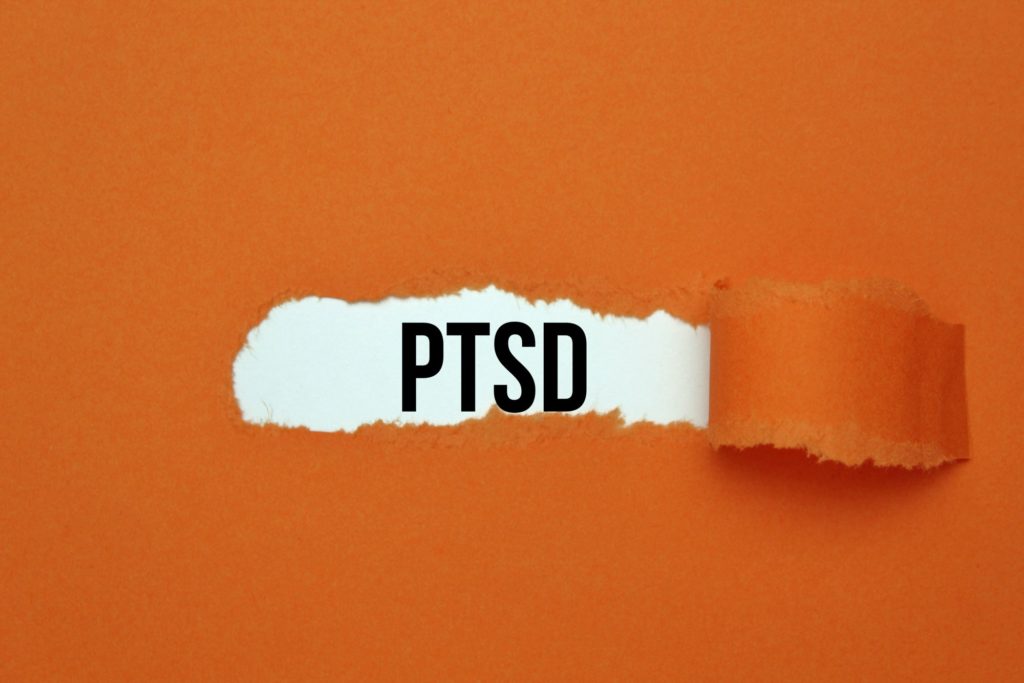As you may have discerned from the title of this article, June is PTSD awareness month. Awareness month and awareness day are meant to raise understanding of post traumatic stress disorder, not only for those veterans and civilians who experience PTSD from trauma, but also for the many people who may live and work, or are in a close relationship, with someone who is trying to manage PTSD symptoms alone.
This is one more reason why raising PTSD awareness is important!
PTSD Awareness Day

And just so you know, June 27, 2022 is National PTSD Awareness Day.
This occasion is arriving at a time when more Americans than ever before are trying to cope with a stress disorder.
When you combine the COVID-19 pandemic, and the recent military war(s) involving the US and our veterans, and add the current worrisome conflict in Europe, etc., the idea that many Americans suffer from PTSD is not really that shocking.
PTSD Symptoms
Most people have never experienced trauma. However, not everyone who is exposed to trauma will experience post traumatic stress disorder. You do not have to have been on the actual battlefield, or have experienced other traumatic events in life to develop PTSD symptoms.
As stated before, PTSD awareness is not only for our veterans, it is also about people who may have experienced sexual assault, physical assault, or who those civilian survivors who have lived through multiple natural disasters, or a serious accident. However, some individuals only have to witness a traumatic event to be affected.
What Is Post Traumatic Stress Disorder?

PTSD – Post traumatic stress disorder is a mental health condition classified as an anxiety disorder, and can cause individuals to also experience such things as chronic pain, depression, flashbacks of the event, sleep disruption and/or nightmares.
How Our Bodies Respond to Trauma
Human beings are naturally equipped to respond in several ways to a traumatic event. The first of these is to freeze, which in many cases is the first reaction to a sexual assault. The second possible response is known as fight or flight; we are all familiar with this one. Additional reactions can be fright, flag (shut down) and fainting, all of which can induce ptsd in an individual.
Triggers
Additionally, PTSD responses can be triggered by a noise, or a voice or any number of things that recall the memory of the traumatic event itself. When this happens, a flood of hormones is released in the body, and this in turn can cause a variety of psychological and physiological responses.
Negative effects of PTSD
As you can see, a person’s mental health can be negatively impacted by the experience of trauma. However, individuals can be unaware that someone they are close to has suffered, or is suffering, from the after effects of trauma. They may wonder why the person is depressed or has angry outbursts with seemingly little or no provocation.
Statistics Based on the U.S. Population
The US Department of Veterans Affairs website quotes the following information in relation to PTSD awareness:
- About 6 out of every 100 people (or 6% of the population) will develop PTSD at some point in their lives. (That’s 18 million people!)
- About 12 million adults in the U.S. have PTSD during a given year. This is only a small portion of those who have gone through a trauma.
- About 8 of every 100 women (or 8%) develop PTSD sometime in their lives compared with about 4 of every 100 men (or 4%).
Diagnosing PTSD
A mental health provider, such as a psychologist or psychiatrist can diagnose PTSD. To meet the criteria, an individual must have experienced all of the following events for at least 1 month:
- One re-experiencing symptom, such as having a nightmare or a flashback.
- One avoidance symptom such as suppressing memories, feelings or thoughts of the event.
- Two reactivity and arousal symptoms such as being easily startled, feeling irritable and having angry outbursts, or having difficulty sleeping.
- Finally, two or more mood symptoms such as depression, or mania and two cognition symptoms such as difficulty concentrating or impairment of thought process.
PTSD and Co-occurring Mental Health Conditions

Also, PTSD awareness must include talk of co-occurring psychiatric conditions, which can include depression, as well as substance use disorder. Of course, these conditions are occasionally diagnosed prior to the individual experience of a traumatic event. However, most commonly, they manifest after the event.
Co-occurring Disorders
PTSD can frequently coexist with other mental health diagnoses this is known as co-occurring disorders. For example, approximately 80 percent of individuals who struggle with PTSD symptoms will also experience a co-occurring psychiatric condition, such as depression or anxiety.
Dual Diagnosis
Dual diagnosis is the condition of having a mental illness and a co-occurring condition such as substance use disorder, depression or anxiety. Many veterans who have been to the battlefront frequently suffer from both substance abuse and mental disorder such as anxiety and depression, or any of a number of other conditions.
Complex PTSD
Complex PTSD might be diagnosed in children or adults who experienced traumatic events such as violence, neglect or abuse, over and over again for a long period of time.
It is thought to be more severe if:
The traumatic events happened early in life;
It was perpetrated by a parent or caregiver;
The person was alone at the time of the traumatic event(s);
The person that caused the trauma is still in contact.
Because their behavior and self-confidence can be negatively affected as they get older, it may take many years for complex PTSD to be recognized in a child’s development.
Adults may lose trust in people or feel separate from others.
A Better Quality of Life

As previously stated June is PTSD awareness month, and has been established to raise awareness by informing the public about the causes of PTSD, its symptoms, other mental disorders that can occur, and the treatments available.
Let it be known that anyone, whether they are a veteran, a current service member, or a civilian who has experienced trauma, can recover from PTSD.
And especially current service members suffering from post traumatic stress (formerly known as shell shock). No matter how the trauma occurred, recovery is possible!
People Can and Do Recover
Because of the efforts of many individuals in establishing June as PTSD awareness month, many people grappling with PTSD have seen release from its tenacious grip. People can and do recover. The help of a therapist versed in trauma and the effect it can have and the support of friends and family is essential in this process. PTSD Treatments Work
There are a Variety of Resources
PTSD Awareness Month has been created to raise PTSD awareness in general, and to let anyone struggling with the affect of PTSD know that there are a variety of resources and treatments that have enabled people to recover from PTSD and the effect it can have on day to day living.
This PTSD Awareness Month was designed to get out the message that through treatment, people recover from this malady.
Support for Post Traumatic Stress Disorder

Talking about the trauma with a therapist can be one of the most effective treatments. This method of treatment is known as Cognitive Behavioral Therapy, or CBT, and is primarily focused around the traumatic events themselves.
Other forms of treatment include medications for anxiety and depression, stress inoculation training, exposure therapy and many more. These treatments can work separately, or in combination.
Veterans and PTSD Awareness Month
Because so many veterans suffer from PTSD, the US Department of Veterans Affairs website is raising awareness with the National Center for PTSD information page.
Turning Point of Tampa Substance Abuse and PTSD Treatments
Turning Point of Tampa located in Florida has helped hundreds of civilians and veterans find lasting sobriety. Part of our clinical treatment plan assists clients dealing with post traumatic stress disorder from serious accidents like a car wreck or natural disaster, war, sexual assault, and mental health issues that effect daily life.
The First Step in Recovery
The first step in recovery is to recognize that you have been affected by trauma. Are you or a loved one or a friend experiencing PTSD and its symptoms? There are many types of treatment, and more resources are available for someone struggling with PTSD.



